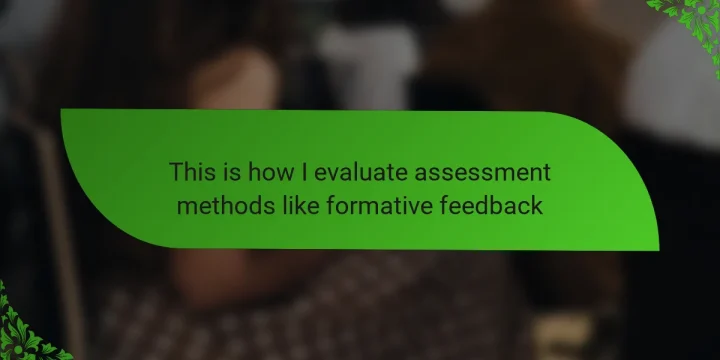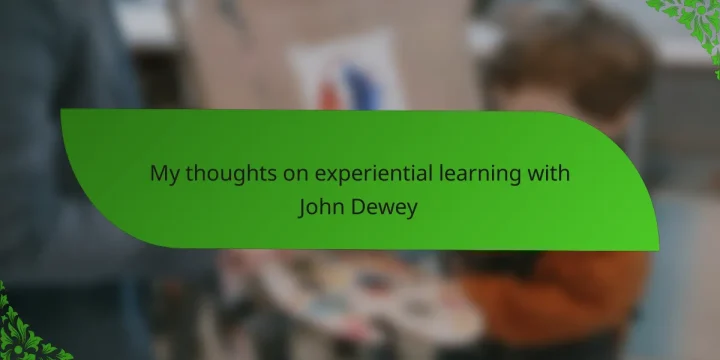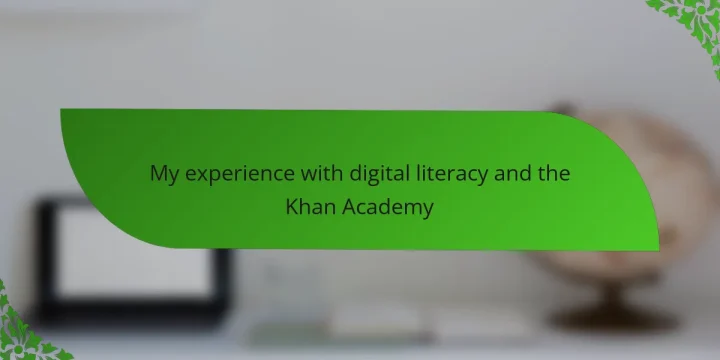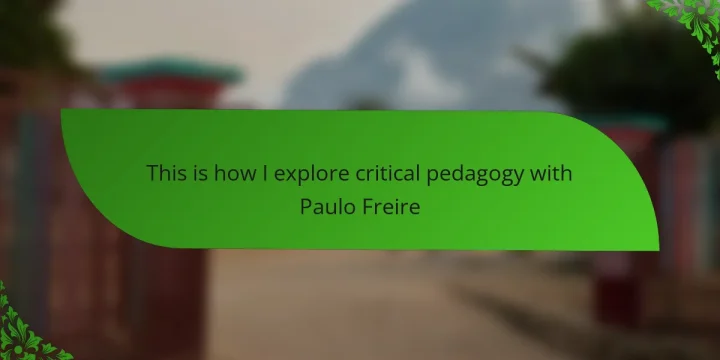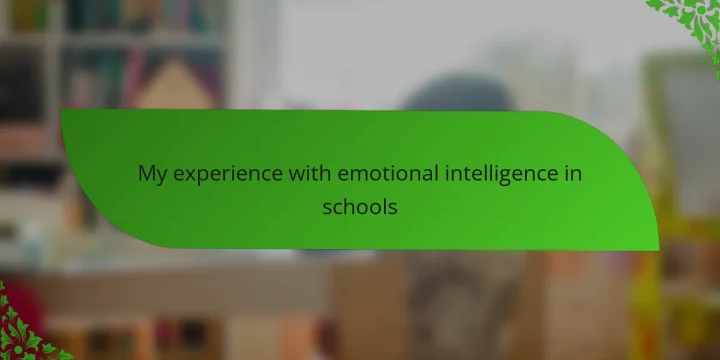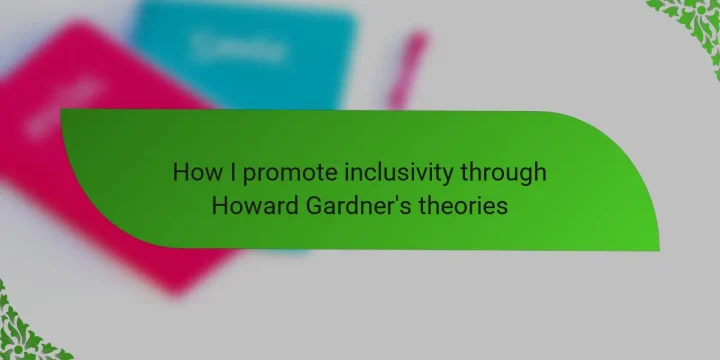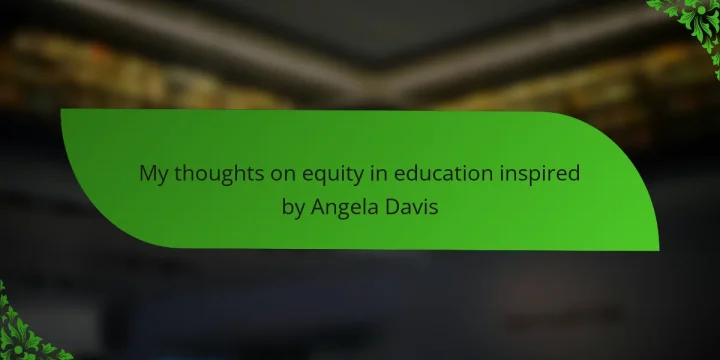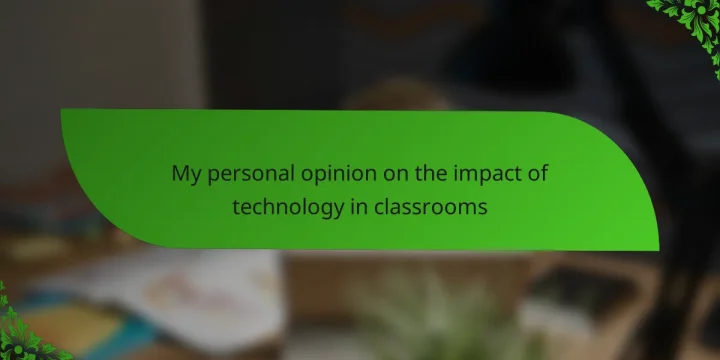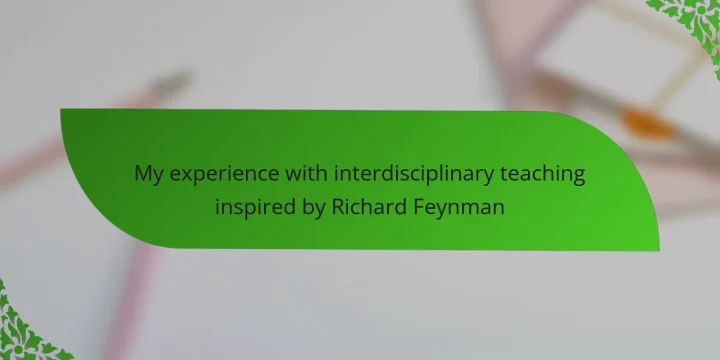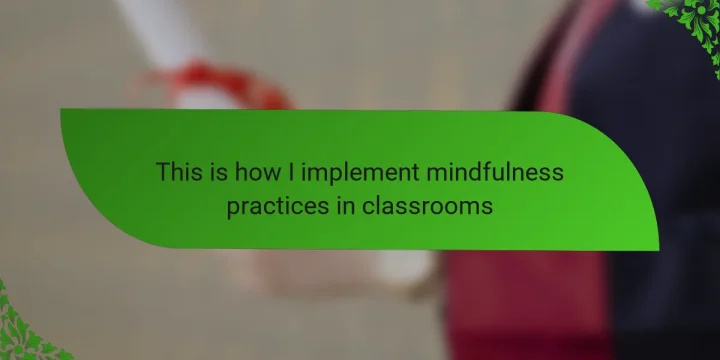
Key takeaways Mindfulness in education fosters emotional resilience, enhances focus, and nurtures empathy among students. Simple exercises, such as mindful breathing and sensory check-ins, can effectively shift classroom energy and promote presence. Creating a mindful classroom involves establishing a calm environment, modeling mindfulness, and developing shared agreements on respect and engagement. Challenges in teaching mindfulness can be addressed by acknowledging student discomfort and integrating brief practices into the curriculum without overwhelming it. Understanding mindfulness in education Mindfulness in education isn’t just about teaching kids to sit quietly; it’s about helping them truly experience the moment. I’ve noticed that when students pause to breathe and observe their thoughts, their natural curiosity surfaces. Have you ever wondered why some lessons stick while others fade away? I believe it’s because mindfulness creates a…
